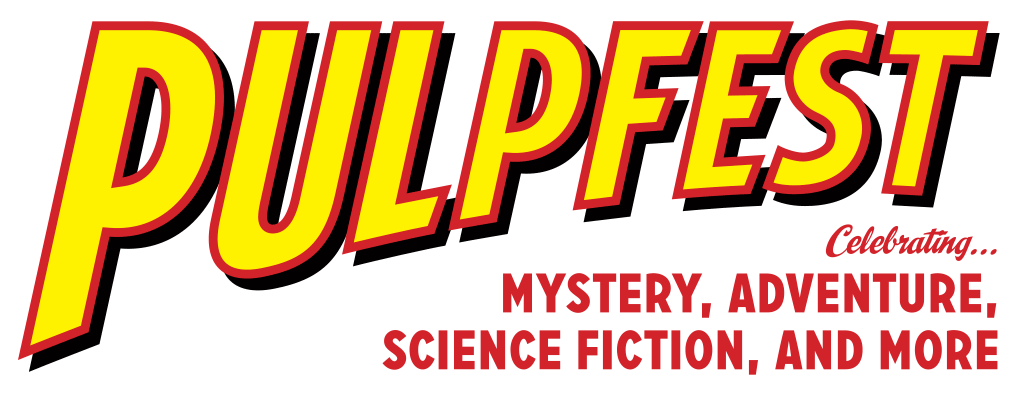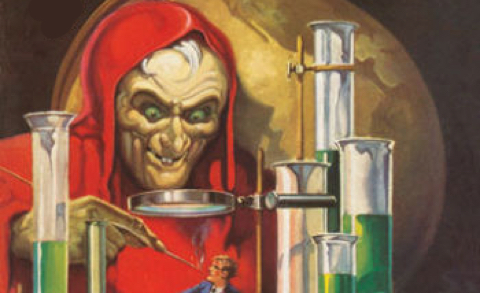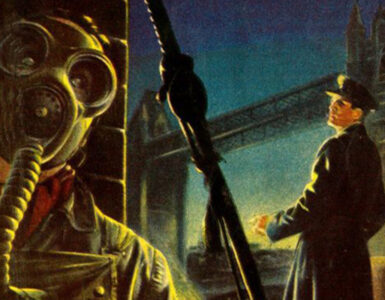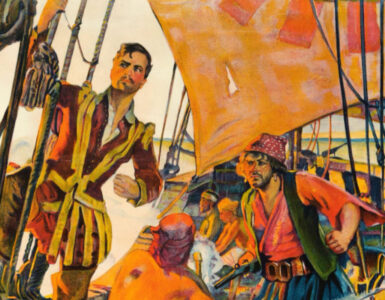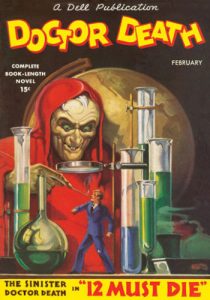 Beginning with its first convention in 2009, PulpFest has drawn countless raves from pop culture enthusiasts. Planned as the summertime destination for fans and collectors of vintage popular fiction and related materials, PulpFest seeks to honor pulp fiction and pulp art by drawing attention to the many ways they have inspired writers, artists, film directors, software developers, game designers, and other creators over the decades. That’s why PulpFest is renowned for its fantastic dealers’ room and wide range of interesting and entertaining programming. So what will be happening at PulpFest 2017?
Beginning with its first convention in 2009, PulpFest has drawn countless raves from pop culture enthusiasts. Planned as the summertime destination for fans and collectors of vintage popular fiction and related materials, PulpFest seeks to honor pulp fiction and pulp art by drawing attention to the many ways they have inspired writers, artists, film directors, software developers, game designers, and other creators over the decades. That’s why PulpFest is renowned for its fantastic dealers’ room and wide range of interesting and entertaining programming. So what will be happening at PulpFest 2017?
Back in October, we told you about the hardboiled dicks that transformed the traditional mystery story into the tough guy (and gal) crime fiction that remains popular to this very day. In November, we focused on the dangerous dames of the pulps, the hardboiled ladies who helped to pave the way for such modern day gumshoes as Sue Grafton‘s Kinsey Millhone, Marcia Muller‘s Sharon McCone, and Sara Paretsky‘s V. I. Warshawski. This month we turn our attention to the psychos of the pulps.
Perhaps the most famous fictional “psycho” of them all is Norman Bates, the insane killer portrayed by Anthony Perkins in PSYCHO. This classic film — directed by Alfred Hitchcock — was based on a 1959 novel written by Robert Bloch. The author, born on April 5, 1917, got his start as a writing professional in the pulps. His first sale was made to his favorite pulp magazine, WEIRD TALES. Over the years, Bloch’s and Hitchcock’s “psycho” has served to inspire similar characters in popular culture.
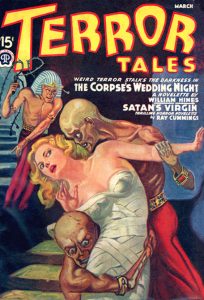 Like Bloch’s PSYCHO, the pulps were a breeding ground for madness. On a monthly basis, mad scientists, crazed hunchbacks, and foul cultists would threaten beautiful women with bodily injury and “fates worse than death” in the pages of weird menace magazines such as TERROR TALES and HORROR STORIES. Over in the hero pulps, New York City’s population would be decimated by one madman after another in the pages of THE SPIDER. America’s Secret Service Ace, Jimmy Christopher, would save America from tyrant after tyrant in OPERATOR #5. The Shadow would battle Shiwan Khan and Benedict Stark, while Doc Savage had his hands full with John Sunlight.
Like Bloch’s PSYCHO, the pulps were a breeding ground for madness. On a monthly basis, mad scientists, crazed hunchbacks, and foul cultists would threaten beautiful women with bodily injury and “fates worse than death” in the pages of weird menace magazines such as TERROR TALES and HORROR STORIES. Over in the hero pulps, New York City’s population would be decimated by one madman after another in the pages of THE SPIDER. America’s Secret Service Ace, Jimmy Christopher, would save America from tyrant after tyrant in OPERATOR #5. The Shadow would battle Shiwan Khan and Benedict Stark, while Doc Savage had his hands full with John Sunlight.
Eventually, the pulp publishers tested their marketing skills as they introduced “villain” pulps: DOCTOR DEATH, DR. YEN SIN, THE OCTOPUS, THE SCORPION, and THE MYSTERIOUS WU FANG. Although these series were all short-lived, they helped to popularize the concept of the diabolic madman. PulpFest will be celebrating both the hundredth anniversary of Robert Bloch’s birth and some of the psychos of the pulps at our next convention.
Start planning to attend PulpFest 2017 and its celebration of pulp fiction and pulp art. Join us next July outside of Pittsburgh, Pennsylvania as we explore “Hardboiled Dicks, Dangerous Dames, and a Few Psychos.” Meanwhile, stay tuned to PulpFest.com for news on our “New Fictioneers” readings, Saturday Night Auction, and much more. We’ll have a new post each and every Monday in the weeks ahead. So visit often to learn all about PulpFest 2017, one of the largest and most popular pulp cons of the year!
(Doctor Death was first introduced in a series of stories credited to Edward P. Norris that appeared in Dell Publications’ ALL DETECTIVE. When that title was cancelled in 1935, it was replaced by a new pulp focusing on an arch villain. Entitled DOCTOR DEATH, the magazine lasted for a total of three issues. It’s first number — dated February 1935 — featured front cover art by Rudolph Zirm, a freelance artist who contributed a few dozen pulp covers to various publishers over a period of six years.
In the three Doctor Death pulp novels — all written by Harold Ward — Doctor Death is Rance Mandarin, “a master of the occult with an insane hatred of scientific progress and industrialization. He believes it is his mission to return the world to a blissful primitive state, which he attempts to do with the aid of zombies, elementals, dissolution rays and communist heavies.”
More wild pulp villainy could be found in such weird menace magazines as TERROR TALES, SPICY MYSTERY STORIES, and HORROR STORIES. Such titles often featured beautiful women threatened by terrors unimaginable — including the March 1940 TERROR TALES — also painted by Rudolph Zirm.)
